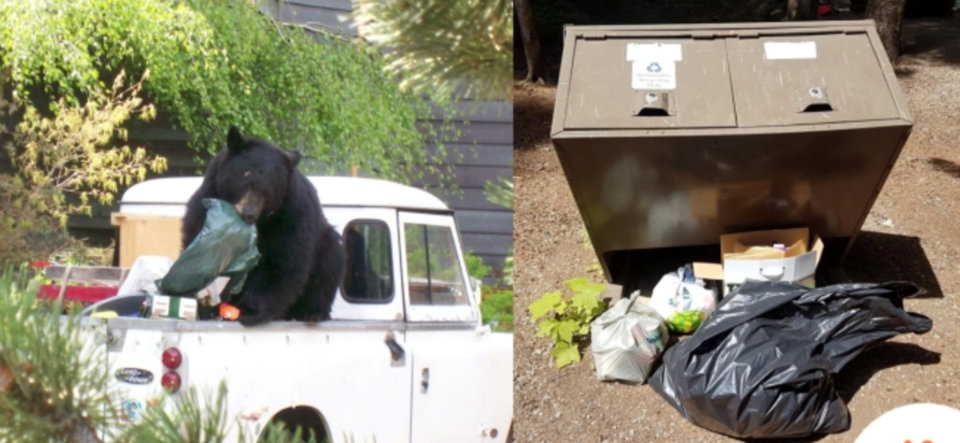The Resort Municipality of Whistler (RMOW) issued a bear alert this week warning locals and visitors to carefully manage any and all attractants this summer.
According to the RMOW, the local Conservation Officer Service (COS) has recently received reports of black bears accessing garbage and other wildlife attractants "at multiple locations throughout Whistler." The alert highlights Rainbow Park, the River of Golden Dreams and Riverside Campground as areas of particular concern.
The three locations "continue to experience ongoing issues with bears continually returning after accessing food rewards," read the alert.
The alert comes just eight days after a black bear was killed by local conservation officers after it had accessed barbecues and garbage in Whistler's White Gold neighbourhood and was deemed a public safety risk.
In that case, the animal began to "display rapidly escalating defensive behaviour, repeatedly charging members of the public and responding officers," according to a RMOW release.
To that end, the RMOW is urging both community members and visitors to be "especially diligent" in securing all attractants during this time. That entails never leaving barbecues, coolers or picnics unattended, packing out what you pack in - "Food items, recycling, drink containers and wrappers must be disposed of in a secure, wildlife-proof container," the RMOW noted, adding that garbage, compostable items and recycling must be taken with you if bins are full - and never approaching or feeding a bear.
Anyone spending time in bear territory like Whistler is reminded to keep at least 100 meters between themselves and bears at all times. If you do encounter a bear, keep your distance, back away slowly and leave the area.
(For more tips on how to manage attractants and exhibit bear smart behaviour in Whistler, read this.)
The RMOW is also encouraging those who see a bear in any of Whistler's parks or residential areas to report the sighting to the BC Conservation Officer Service (COS) at 1-877-952-7277.
As the municipality pointed out, early reporting enables the COS to intervene before a bear becomes habituated and allows conservation officers to shepherd the bear back into the wild—potentially saving that bear from a death sentence.




